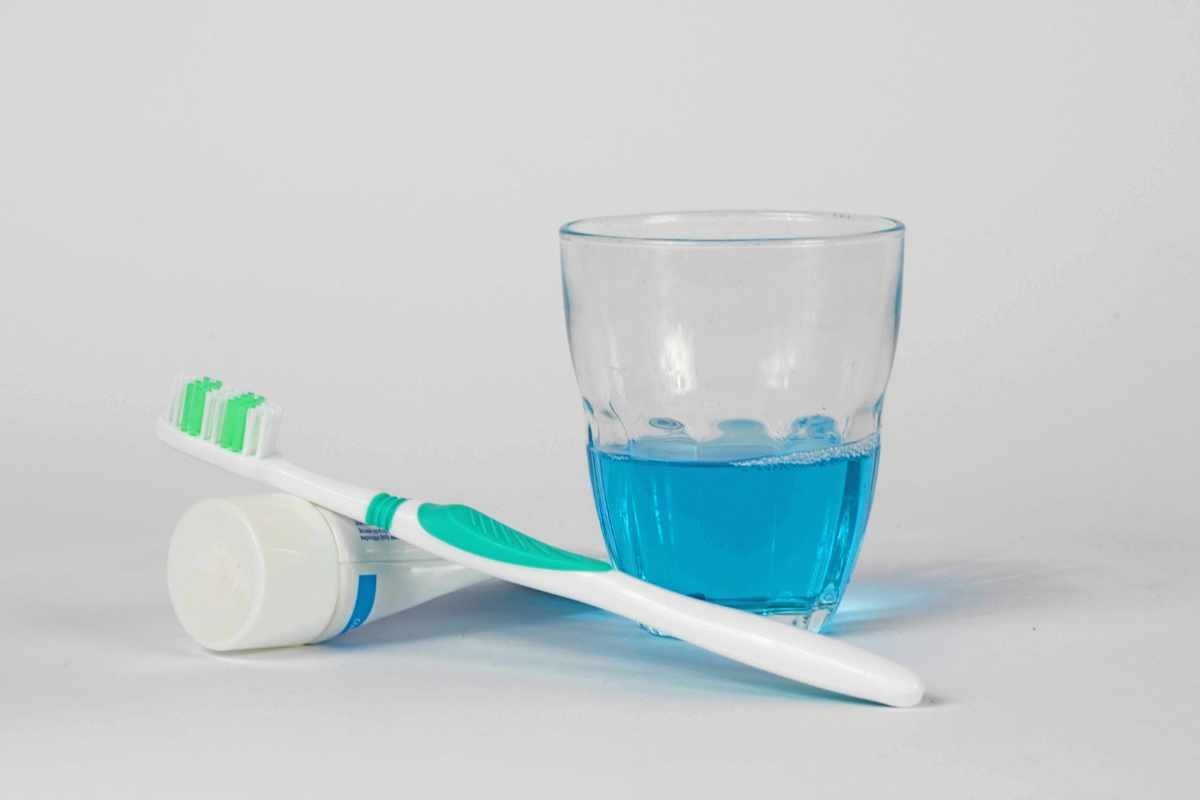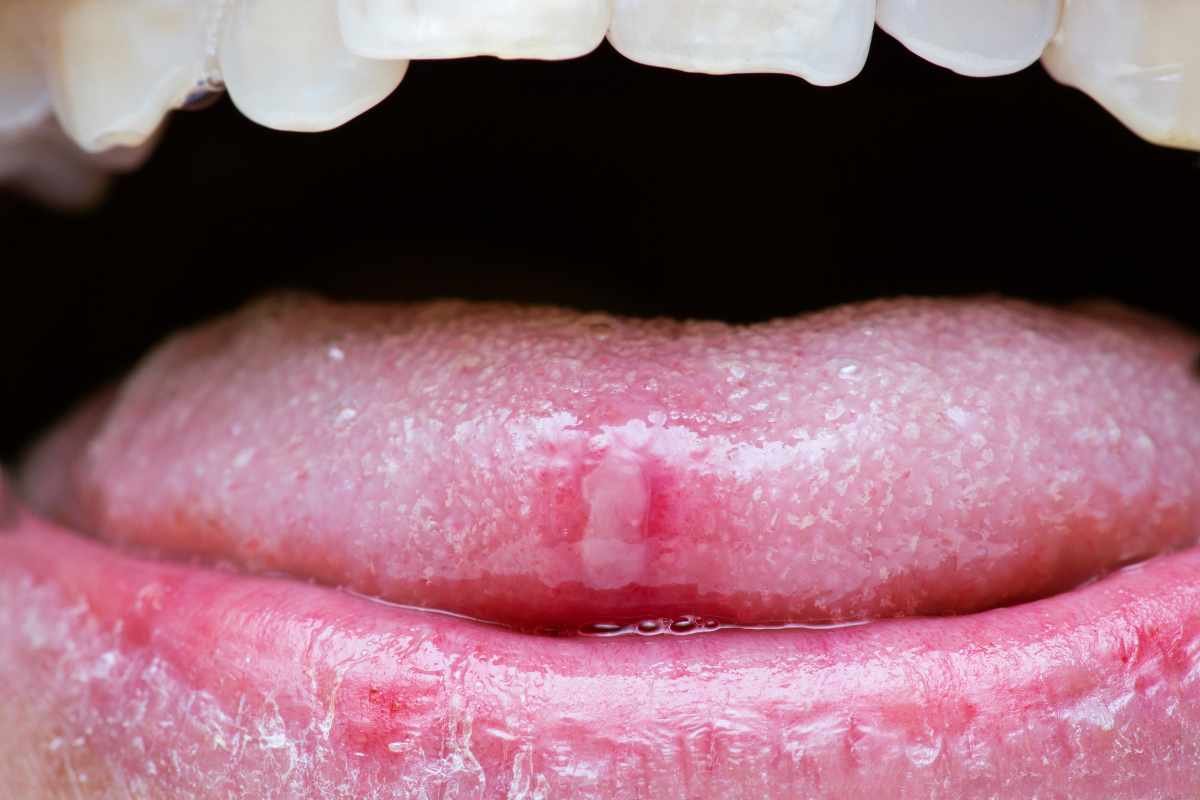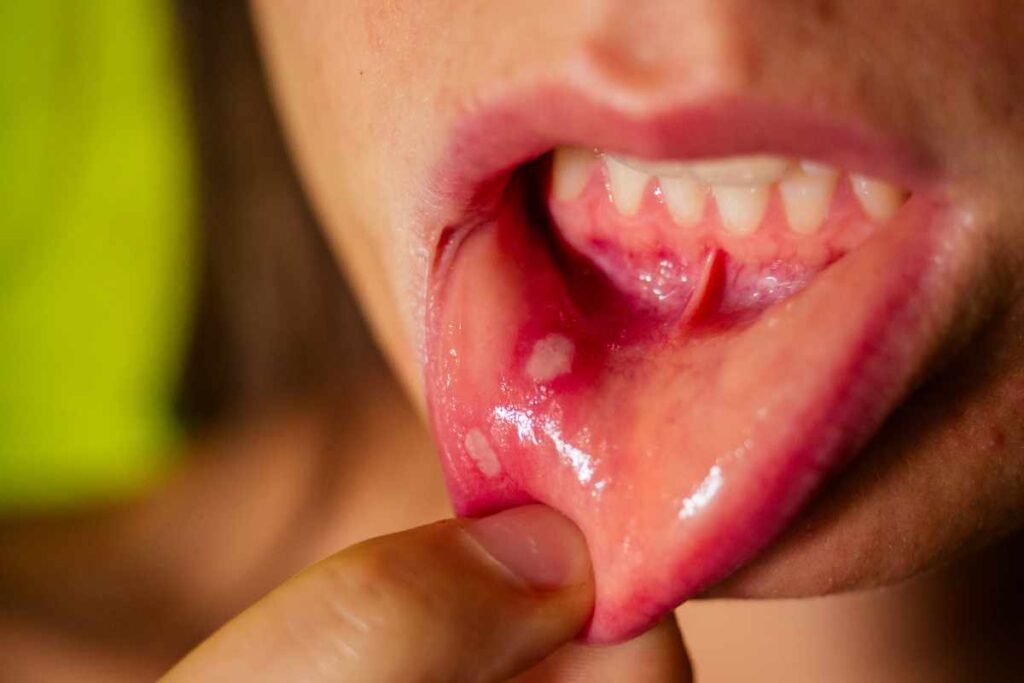Canker sores, also known as aphthous ulcers, are small, painful ulcers that can appear inside the mouth, including the tongue. They are not contagious or harmful but can cause significant discomfort and disrupt daily activities such as eating, drinking, and talking. In this blog, we have provided you with information on Canker Sore in tongue, such as soreness in the tongue, how to treat it, how to prevent its recurrence, and how to manage oral health effectively.
What is a Canker Sore in Tongue?
A canker sore in the tongue is a shallow, round, or oval lesion that forms on the soft tissues of the mouth. Canker sores can occur in various parts of the mouth, but the tongue is a particularly common area. These sores are typically white or yellow with a red border, and they may cause a burning or tingling sensation before they become visible.
Causes of Canker Sore in Tongue

The exact causes of cranker sore in the tongue are not clear, but several factors contribute to this development. Some of the common causes are as follows:-
- Injury to the Tongue: If you accidentally bite your tongue, brush too hard, or consume foods that irritate your mouth, it can trigger canker sore.
- Nutritional Deficiencies: Several deficiencies in vitamins such as B-12, zinc, folate, or iron can lead to the formation of canker sores.
- Stress and Hormonal Changes: If you are going through emotional stress and changes in hormone levels, especially during menstruation, a canker sore can be triggered.
- Food Sensitivities: You may develop canker sores after consuming acidic or spicy foods, such as citrus fruits, tomatoes, or coffee.
- Underlying Health Conditions: The one who suffers from conditions like celiac disease, Crohn’s disease, and immune system issues can increase the likelihood of developing canker sores.
- Allergies to Dental Products: Toothpaste or mouthwashes contain sodium lauryl sulfate (SLS). Allergies to these ingredients can increase the chances of you suffering from canker sores.
Symptoms of Canker Sore in Tongue
Let’s understand the different symptoms of canker sore in the tongue:-
- Pain: The symptom of a canker sore is pain, which makes eating and speaking uncomfortable.
- Swelling: The area around the sore may become inflamed and swollen.
- Discomfort: If you are having a tingling or burning sensation, the sores appear on the tongue.
- Size: The canker sores usually range in size from millimeters to about a centimeter in diameter.
- Location: They appear anywhere on the soft tissues of the mouth, usually tongue is a frequent spot.
How to prevent Canker Sore in Tongue?
Although a canker sore in the tongue generally heals on its own within 7 to 10 days, several treatment options can help alleviate pain and promote faster healing.
1. Over-the-counter Remedies
Several OTC products are available to reduce pain and inflammation, including:
- Mouth Rinses: Saltwater or baking soda rinses can help cleanse the sore and promote healing.
- Topical Gels or Ointments: Applying numbing gels containing benzocaine or hydrogen peroxide to the sore can relieve discomfort.
- Antiseptic Mouthwash: Using a non-alcoholic antiseptic mouthwash can help reduce bacteria and prevent infection.
2. Prescription Medication

In severe cases, a doctor may prescribe:
- Oral Steroids: These can reduce inflammation and accelerate healing.
- Antimicrobial Mouth Rinses: These mouthwashes help control bacterial growth and prevent infection.
3. Home Remedies
Natural remedies may also provide relief from the discomfort of canker sore in the tongue:
- Honey: Known for its antibacterial properties, applying honey to the sore can soothe irritation.
- Coconut Oil: Swishing with coconut oil may help reduce inflammation.
- Aloe Vera Gel: Applying fresh aloe vera can promote faster healing.
Prevention of Canker Sore in Tongue

While it’s impossible to prevent all cases of canker sore in tongue, certain steps can help reduce the frequency and severity of outbreaks:
- Maintain Good Oral Hygiene: Regular brushing and flossing can reduce irritation in the mouth and lower the risk of sores.
- Avoid Irritating Foods: Limit or avoid foods that are known to trigger canker sores, including acidic fruits, spicy foods, and coffee.
- Manage Stress: Reducing stress through relaxation techniques such as yoga or meditation may help prevent canker sores.
- Address Nutritional Deficiencies: Ensuring adequate intake of key vitamins and minerals can help ward off canker sores.
- Switch Dental Products: Opt for toothpaste and mouthwash without sodium lauryl sulfate to reduce irritation.
- Use a Soft-bristled Toothbrush: Gently brushing your teeth and tongue can help prevent accidental injury to the mouth.
Canker Sore vs. Cold Sore
Many people confuse canker sores with cold sores, but these two conditions are different. In the below table, you will get to know how each one is different from the other.
| Feature | Canker Sore in Tongue | Cold Sore |
| Cause | Not viral, caused by multiple factors | Herpes simplex virus (HSV) |
| Location | Inside the mouth (tongue, cheeks, etc.) | Outside the mouth (lips, around the nose) |
| Contagious | No | Yes |
| Appearance | Round or oval, white/yellow with red edge | Fluid-filled blisters |
| Pain | Yes, painful, especially while eating | Painful and may itch |
| Duration | 7-10 days | 1-2 weeks |
| Recurrence | Sometimes | Frequent |
When to See a Doctor
Generally, canker sores heal on their own without the need for medical attention. But you should consult a doctor or dentist if you are suffering from the below conditions.
- The sores are huge.
- They last longer than two weeks.
- You’re experiencing a high fever alongside the sores.
- The sores are spreading or appear to be infected.
Final Thoughts
Like a canker sore, small pains can linger, but with patience and care, they too will heal!
A canker sore in tongue is a common and painful condition that can affect daily activities. By understanding the causes, symptoms, and treatment options, you can effectively manage canker sores and prevent future outbreaks. It is important to maintain good oral hygiene, manage stress, and avoid triggers like certain foods can go a long way in reducing the frequency of these sores.
If you have frequent or severe canker sores, consult a healthcare professional for personalized advice and treatment.
Also read: Symptoms of Dental Infection: Recognizing Signs for Timely Intervention









